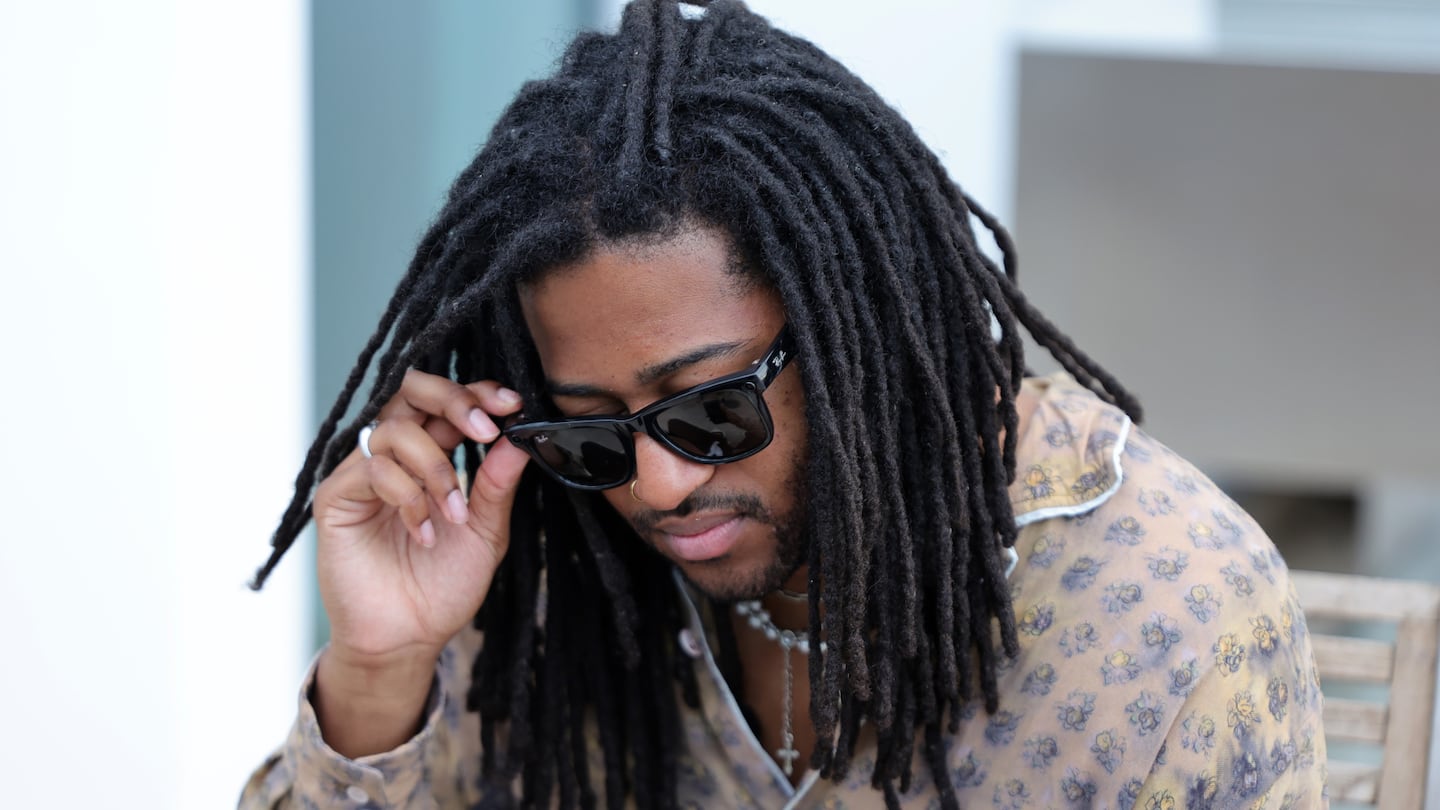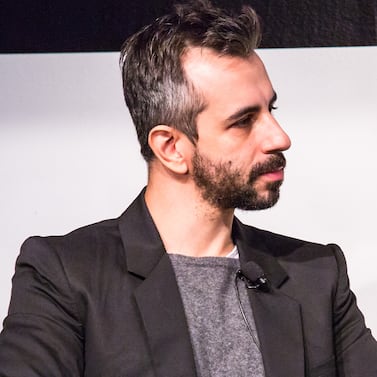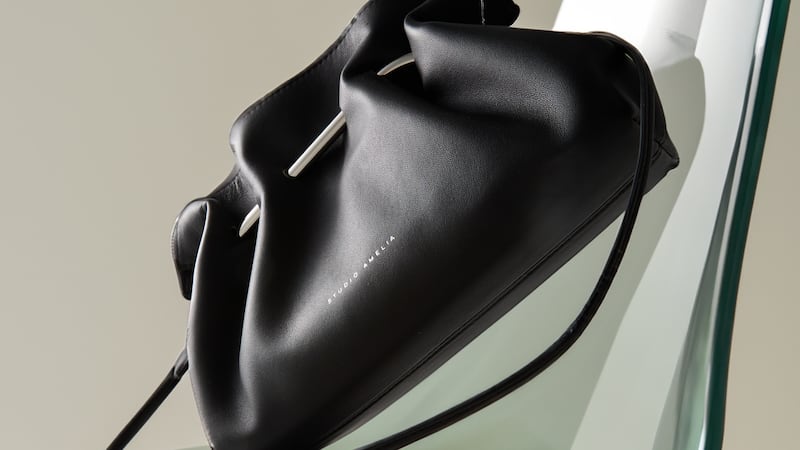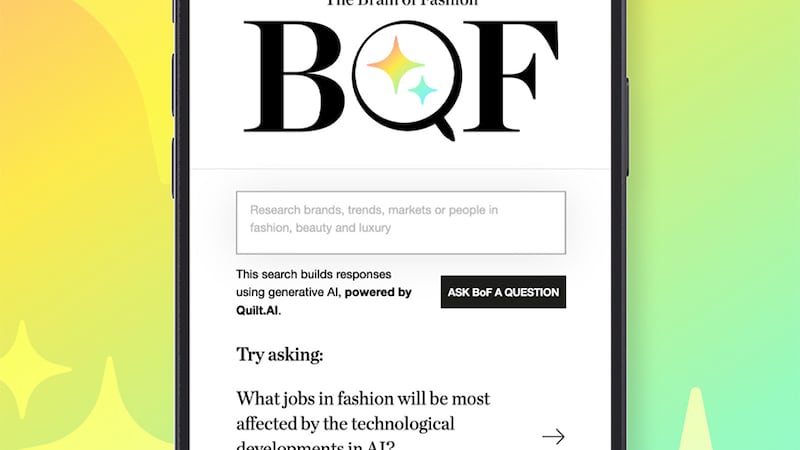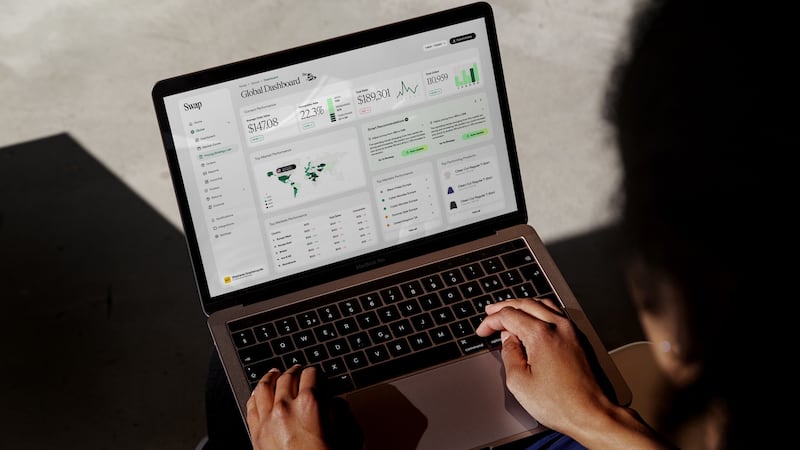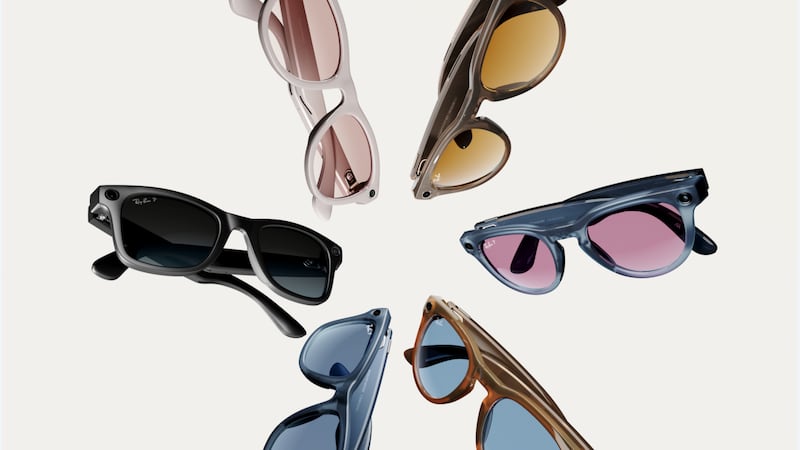Agenda-setting intelligence, analysis and advice for the global fashion community.
Technofuturists have touted smart glasses as the next big device off and on for more than a decade. They were wrong, often embarrassingly so, because wearables makers were either laser-focused on the underlying technology at the expense of style — epitomised by the dorky Google Glass, which even a cameo in a Diane Von Furstenberg runway show couldn’t make cool — or simply bolted half-baked features on existing products.
In the last few months, we’ve seen mounting evidence that tech and fashion are finally rowing in the same direction.
This week, Meta bought a minority stake in the eyewear maker EssilorLuxottica for $3.5 billion, doubling down on the unexpected success of the two companies’ smart glasses collaboration, which began with Ray-Ban and now includes Oakley. Meta is also reportedly planning an eyewear line with Prada, whose eyewear EssilorLuxottica holds a 10-year license to produce.
In May, Google — already back in the smart glasses game via a deal with Samsung — announced partnerships with Warby Parker, Gentle Monster and Kering Eyewear, which makes glasses for Kering brands including Gucci and Bottega Veneta, as well as other labels such as Cartier, Alaïa and Puma. The deal with Warby Parker included an investment of $150 million by Google, while its tie up with Gentle Monster reportedly involved a $100 million investment, though neither company has confirmed the news.
ADVERTISEMENT
Apple, which knows a thing or two about making wearables fashionable with its Apple Watch, is gearing up to release its own smart glasses in 2026, according to Bloomberg, while Chinese tech giant Xiaomi recently unveiled its version of the technology.
These are major investments, and the market is brimming with optimism. Warby Parker’s stock is up by more than one-quarter since the Google investment was announced.
But after so many prominent failures, why do tech giants, fashion executives and investors believe this time will be any different?
The clearest reason is the surprise success of the second generation of Ray-Ban Meta glasses, which debuted in late 2023 and as of February had sold more than 2 million pairs. The company plans to scale production to 10 million units annually by the end of next year.
Those results have created confidence that consumers will actually buy smart glasses if they’re done right. The Ray-Ban Meta glasses offer a number of functionalities, from capturing photos and videos to live streaming on Instagram, while being able to maintain the classic look of Ray-Ban styles like the Wayfarer. Meta has also augmented the glasses with AI features, such as live translation of a few languages, the ability to identify landmarks or get directions and general informational searches.
Those capabilities point to another cause for the rash of activity: “It’s a bit of a race to leverage the AI models,” said TD Cowen analyst Oliver Chen.
The expectation appears to be that, as AI advances, AI-powered smart glasses will be able to add new abilities to make them more useful — and therefore more desirable to consumers who will get all sorts of features in a package that finally just looks like a regular pair of sunglasses.
The latest smart glasses boom could fizzle out just like last time, and the time before. After all, it’s still a novelty to see someone wearing Meta Ray-Bans in public. But unlike the Google Glass, you don’t feel secondhand embarrassment for the wearer.
ADVERTISEMENT
THE NEWS IN BRIEF
FASHION, BUSINESS AND THE ECONOMY
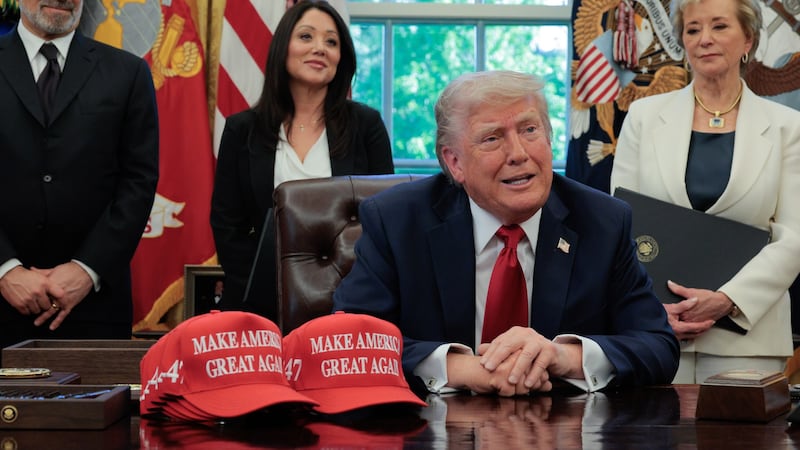
Trump announced 25 percent tariffs on Japan and South Korea in August. The duties, which are set to begin on Aug. 1, are largely in line with the rates Trump had initially imposed. The announcement was the first of an expected wave of trade deals this month.
Amazon Prime Day sales plunged 41 percent on the first day of its four-day event. Preliminary results indicated the e-commerce giant’s gamble on doubling the duration of its summer sales event didn’t pan out. The poor results have become a sign of cautious consumer sentiment as President Trump’s trade war pans out.
Italy’s Cucinelli posted a 10.7 percent increase in first half revenues. The sales, which totalled €684 million, slightly beat analyst expectations by and rose 10 percent in the Americas and 13 percent in Asia, bolstered by double-digit growth in China.
Levi foresaw robust revenue growth mostly offsetting tariff impact. Revenue for the quarter ending June 1 rose 6 percent to $1.4 billion, beating analyst expectations. The denim maker raised its revenue outlook between 1 and 2 percent for the current fiscal year.
S&P cut Saks’ credit rating over its new financing package. The department store operator’s credit rating has fallen 10 rungs below investment grade to CC, a downgrade that the agency said is in line with its view that Saks’ $600 million financing package is “tantamount to a default.”
Shein filed for a Hong Kong IPO to save its London listing. With the filing, the fast-fashion giant hopes to increase pressure on British regulators to approve its planned London debut, according to the Financial Times. If the UK Financial Conduct Authority accepts the Shein IPO, London would reportedly still be Shein’s preferred exchange.
ADVERTISEMENT
Canada Goose’s private equity backer weighed a stake sale. Controlling shareholder Bain Capital is working with advisers as it contemplates selling part or all of its holding in the luxury parka maker.
Ralph Lauren’s CEO sees “resilient” demand amid tariff uncertainty. Patrice Louvet said demand for the American luxury brand’s core products including cable-knit sweaters remains strong enough to offset cautious consumer spending.
The UK’s Mulberry raised $27 million from top investors as revenue dropped. The brand reported a 21 percent drop in annual revenue on Thursday, but raised capital with the support of its two largest shareholders, Chalice and Frasers. Frasers executive James France also joined Mulberry’s board.
Uniqlo owner’s profit missed estimates on weak China sales. Fast Retailing Co. reported third-quarter operating profit of 146.7 billion yen ($1 billion) in the three months ending in May, trailing analyst estimates of 150 billion yen. Revenue in China declined by 5 percent off weaker consumer sentiment.
The UK arrested four people linked to M&S and Harrods cyberattacks. The British National Crime Agency arrested three teenage males and one 20-year-old female in the West Midlands and London on suspicion of several offences, including violations of the Computer Misuse Act.
Jane Birkin’s original Hermès Birkin sold for $10 million. The sale at Sotheby’s in Paris to a private collector in Japan broke the global record for most valuable handbag ever sold at auction, previously set in 2021 by a $513,000 Christie’s sale of the Hermès Himalaya Kelly.
Claire’s considers bankruptcy for US operations. The tween retailer has been working with Houlihan Lokey Inc. to strengthen its finances while weighing a sale of all or part of its operations.
Amina Muaddi opened its first store. The new location for the seven-year-old women’s footwear and accessories brand is at 6 Avenue Montaigne in Paris, where customers can also purchase a capsule collection launched by the brand to commemorate the opening.
Birkenstock cracked down on fakes in India. After the German brand filed an infringement lawsuit in the Delhi High Court in May against footwear traders, four factories and two unnamed individuals, Indian court-appointed legal representatives inspected small-scale factories in recent weeks to seize counterfeit Birkenstock footwear.
Heron Preston bought back his brand from New Guards Group. The designer has reacquired full, exclusive rights over his namesake label, which launched in 2017, from the Farfetch-owned holding company. Financial terms were not disclosed.
Victoria & Albert Museum will stage a Schiaparelli exhibition in London. “Schiaparelli: Fashion Becomes Art” will open on March 21 next year and include over 200 items, including Elsa Schiaparelli’s surrealist dresses made in collaboration with Salvador Dalí. Current creative director Daniel Roseberry’s works will also be shown.
THE BUSINESS OF BEAUTY
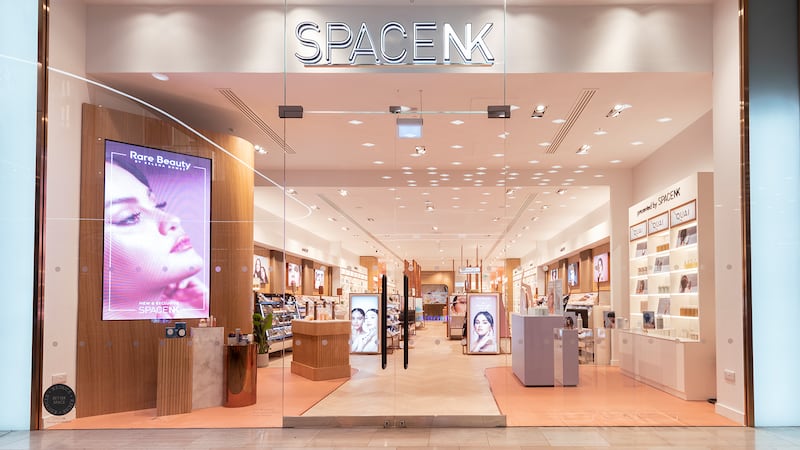
Ulta Beauty acquired Space NK. Ulta announced Thursday that it has purchased the British beauty retailer from its previous owner Manzanita Capital for an undisclosed sum, though previous reports have valued the company at upwards of $300 million. The deal will give the American beauty conglomerate access into the UK market.
Trump said pharmaceutical tariffs could reach 200 percent. The US president added that he would give drugmakers roughly a year to negotiate. The Trump administration has posited that heavy reliance on foreign production of medicine is a national security threat, but drugmakers are concerned duties could increase the chance of medication shortage.
PEOPLE
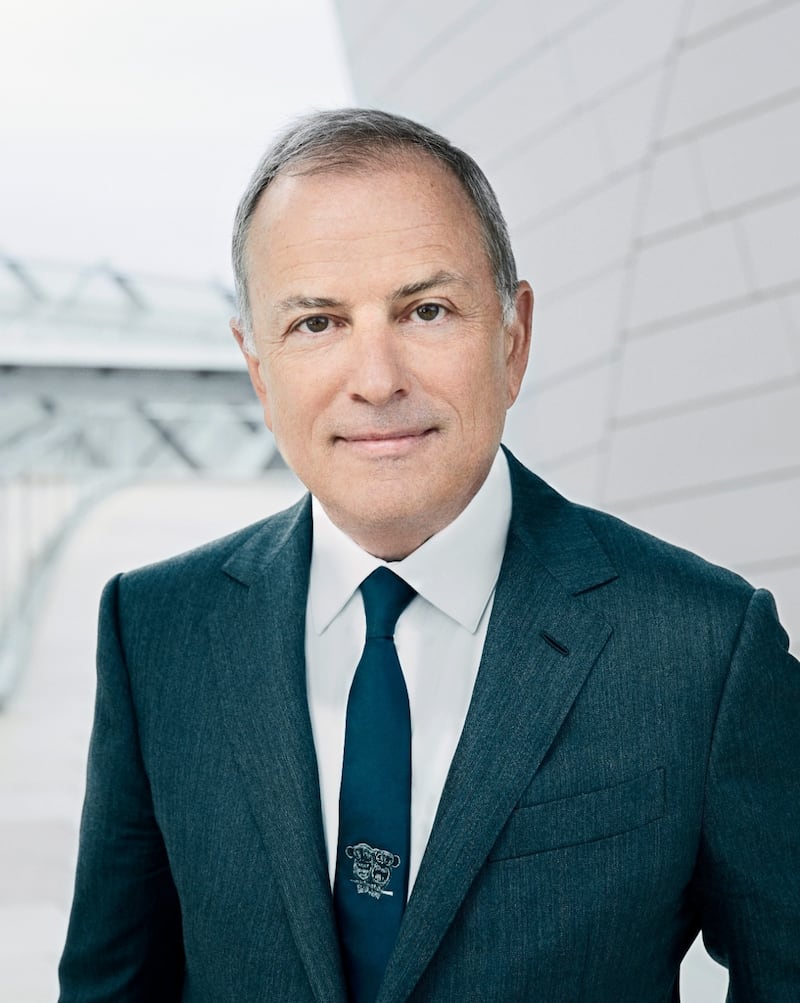
Michael Burke was tapped to lead LVMH Americas. The former Louis Vuitton chief executive and LVMH veteran will move to New York to begin his role as chairman and CEO of LVMH Americas, tasked with “representing and promoting the best interests of the group in North and South America,” the company said.
Nike replaced Converse’s CEO in a bid to reverse its sales slump. Nike VP and general manager Aaron Cain, a 21-year veteran, will take the reins at Converse to help revive its sales. He succeeds Jared Carver, who is exiting after two years as CEO.
Compiled by Jessica Kwon.
